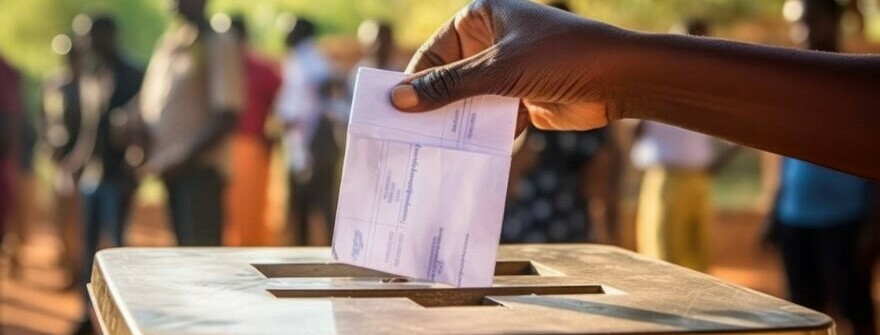The long-awaited General Election in South Sudan, now scheduled for December 22, 2026, continues to dominate the national and international discourse. While the government insists that the country will finally go to the polls, the reality on the ground paints a picture of profound uncertainty. Citizens remain caught between anticipation and skepticism, asking whether the conditions for a credible, inclusive, and peaceful electoral process truly exist.
The elections were initially set for December 2024 but were postponed for two years, ostensibly to allow the completion of essential milestones, including the drafting of a permanent constitution, conducting a national census, and registering political parties.
The National Elections Commission (NEC) has confirmed the new date and has began limited preparations, including training election administrators. Yet NEC remains weak, underfunded, and fragile, raising doubts about its ability to deliver on such a massive and sensitive undertaking.
The state machinery itself is overstretched. Years of conflict have hollowed out public institutions, leaving them dependent on decrees rather than functioning legal systems. The repeated extension of the transitional period and the reliance on executive decisions reveal a country struggling to balance governance with political survival. The promise of elections therefore risks becoming more symbolic than substantive.
At the heart of the electoral dilemma is the volatile political and security landscape. Inter-communal violence continues to flare across the country, most recently in places like Nasir, where clashes in early 2025 demonstrated just how fragile the peace remains. Political instability is further compounded by distrust among the elites, factionalism within armed groups, and the lack of a genuine national reconciliation.
The Tumaini Peace Initiative in Nairobi, Kenya, that was intended to bring the holdout groups to the fold remains a work in progress. Without a broader and more inclusive settlement, elections could deepen polarization rather than bridge divides. The risk is that polls held under such conditions might ignite fresh cycles of violence rather than consolidate peace. Elections are not only political processes but also logistical feats, requiring immense resources.
South Sudan’s economy remains crippled by mismanagement, declining oil revenues, and international sanctions. Organizing a nationwide vote requiring infrastructure, trained personnel, voter education, and security, appears far beyond the means of the current state.
NEC, already stretched thin, lacks both the financial independence and capacity to oversee a process of this magnitude. International partners may step in, but their support alone cannot substitute for domestic ownership of a credible process. Without adequate resources, elections risk being rushed, poorly managed, and widely contested.
Beyond the institutions, there is the pressing question of citizen readiness. Many South Sudanese were yet to fully understand what elections mean, especially in rural and conflict-affected areas where civic education has been minimal. Displacement, insecurity, and poverty further disenfranchise communities, undermining the inclusivity of the process.
Citizens are expected to exercise a democratic right, yet the mechanisms to ensure that their voices are heard, such as voter registration, independent media, and the freedom of assembly—remain fragile or absent. Without broad civic participation, elections risk being reduced to elite negotiations, disguised as a popular choice.
The question remains, what happens if elections do not take place on December 22, 2026? The transitional government has already extended its mandate multiple times. Another delay would erode what little credibility the current arrangement holds, potentially plunging the country into a deeper legitimacy crisis.
Citizens, already fatigued by broken promises, may view further postponements as betrayal, creating a fertile ground for unrest. At the same time, holding elections without the necessary conditions could produce a contested outcome that destabilizes the nation further. South Sudan therefore faces a paradox: both holding and not holding elections carry significant risks.
For elections to be a reality, South Sudan must urgently address critical issues. These include strengthening NEC with genuine autonomy, finalizing the permanent constitution, conducting a credible census, ensuring civic space, and consolidating peace through inclusive dialogue with all political and armed groups. International partners can provide technical and financial support, but the ultimate responsibility lies with the country’s leaders to prioritize the national interest over personal or factional ambitions.
South Sudan’s journey to elections is as complex as the nation’s turbulent history. While December 22, 2026 stands as the official date, the feasibility of reaching it with credibility remains uncertain. The state’s limited capacity, the political instability, institutional weakness, and the fragile peace raise profound doubts whether citizens will genuinely participate in shaping their future.
The challenge is not just about whether elections will take place, but whether they will mark a turning point toward stability and democracy, or become yet another broken promise in the long struggle for nationhood. South Sudanese, weary yet resilient, deserve more than symbolic polls. They deserve a process that affirms their dignity, safeguards their peace, and finally delivers the promise of independence.
The writer, Mogga Loyo, is a social researcher and peace advocate. He can be reached via email: mogtomloyo@yahoo.co.uk
The views expressed in ‘opinion’ articles published by Radio Tamazuj are solely those of the writer. The veracity of any claims made is the responsibility of the author, not Radio Tamazuj.




